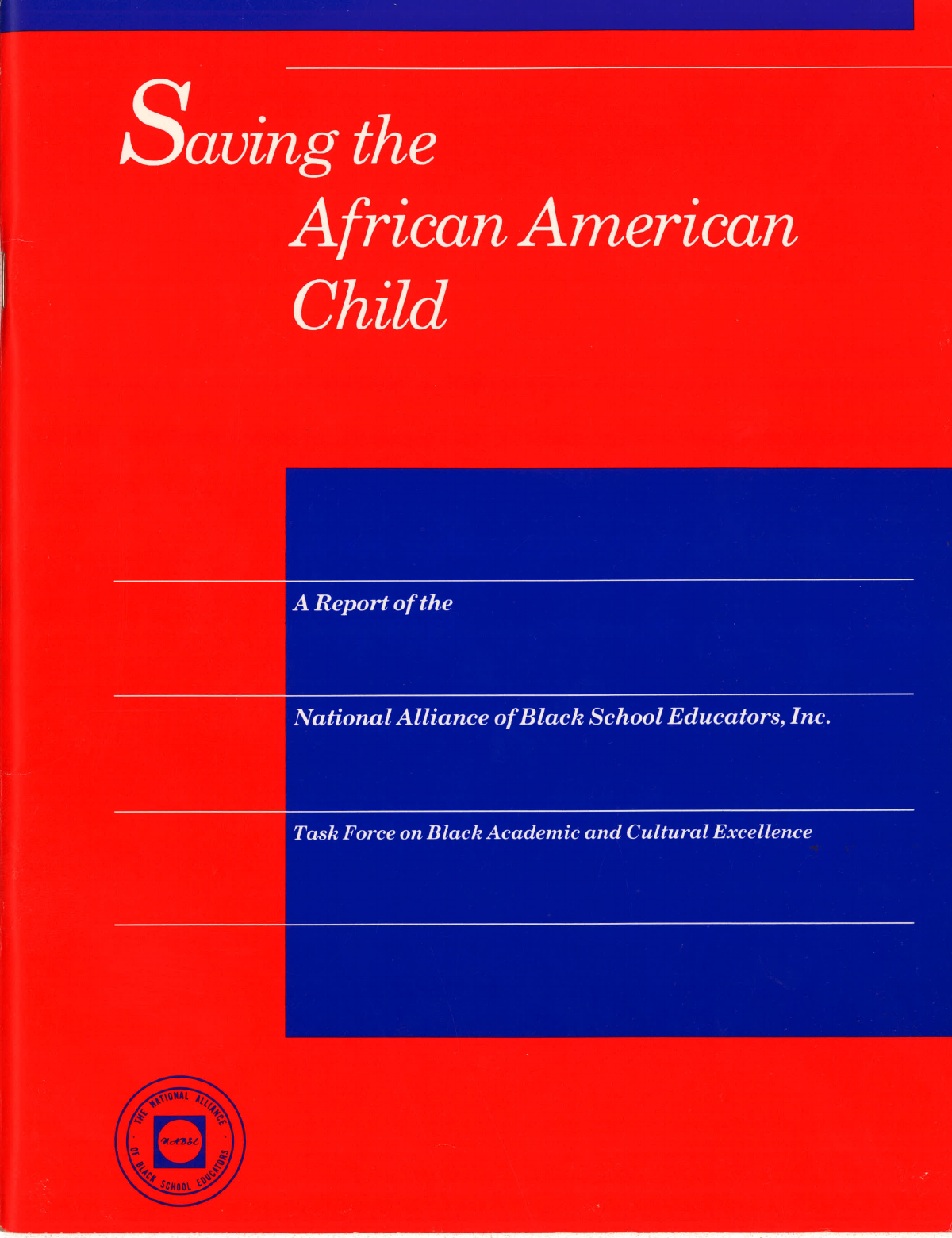Two Decades Ago, Educators Advocated Using Name
The term “African American” has become such a part of the landscape that it’s difficult to recall that it was controversial when it was proposed for general use 20 years ago.
These days, the nomenclature debate is more likely to revolve about use of the “N” word.
Progress?

In 1984, the National Alliance of Black School Educators, an organization of school superintendents, named a task force on the future of black children. Asa G. Hilliard of Georgia State University was its chairman; Barbara A. Sizemore of the University of Pittsburgh its vice chair.
“Throughout this report we have used the unhyphenated name, African
American, to identify the black population, previously called Negro,
‘colored’ and black,” read the introduction to the task force findings,
“Saving the African American Child.”
“African Americans have called themselves many names since the ancestors were torn from their tribal moorings in Africa and deprived of their histories. We remove the hyphen to emphasize this rupture.”
The term had been in use for at least 20 years among intellectuals, black nationalists and others, but this was believed to be the first time an organization had called for use of the term, the organization’s leaders told a reporter then. The next year, the Dallas Independent School District started using “African American” along with “black.”
On Dec. 19, 1988, the term truly entered the mainstream, as about 75 black leaders met in Chicago to discuss an “African American agenda.” Using the term was part of a broad “cultural offensive,” but the efforts of one reporter — Lillian Williams of the Chicago Sun-Times — made the so-called “name change” the news story from the meeting.
It was inaccurately presented in most news reports as the idea of Jesse Jackson, and when the story was rewritten by editors at the Associated Press, an organization that did not cover the conference, the hyphen was inserted to conform to AP style, as reported (by this writer) in the July/August 1989 issue of the ASNE Bulletin, a publication of the American Society of Newspaper Editors.
“Blacks: Call us ‘African Americans’,” was the Sun-Times’ banner headline. “Jesse, other leaders declare name change.”
And then came the culture wars. One editor not of color, expressing her dislike of the term, said it reminded her of “womyn,” a term some feminists tried to popularize so that the letters “m-a-n” would be eliminated when discussing the female gender. Some whites demanded (in jest?) that they be called “European Americans.”
Others wrote stories about how the term “divided” blacks. Columnists held forth on the topic, and some editors dug in their heels, refusing to allow the term in their papers, except in quotes.
Today, the terms “blacks” and “African Americans” co-exist, though careful writers know that only Americans can be “African Americans.”
But to this day, through annual revisions and the fact that you will find the term in dozens of Associated Press stories, the AP Stylebook, the bible in so many newsrooms, insists:
“The preferred term is black. Use African-American only in quotations or the names of organizations or if individuals describe themselves so.”
- Google Answers: origin etc of “african/american”
- Joe Pinsker, the Atlantic: The Financial Consequences of Saying ‘Black,’ vs. ‘African American’ (Dec. 30, 2014)
[btnsx id=”5768″]
Facebook users: “Like” “Richard Prince’s Journal-isms” on Facebook.
Follow Richard Prince on Twitter @princeeditor
To be notified of new columns, contact journal-isms-subscribe@yahoogroups.com and tell us who you are.
- Diversity’s Greatest Hits, 2016
- Book Notes: 16 Writers Dish About ‘Chelle,’ the First Lady
- Book Notes: From Coretta to Barack, and in Search of the Godfather
- Journal-isms’ Richard Prince Wants Your Ideas (FishbowlDC, Feb. 26, 2016)
- “JOURNAL-ISMS” IS LATEST TO BEAR BRUNT OF INDUSTRY’S ECONOMIC WOES (Feb. 19, 2016)
- Richard Prince with Charlayne Hunter-Gault,“PBS NewsHour,” “What stagnant diversity means for America’s newsrooms” (Dec. 15, 2015)
- Book Notes: Journalists Follow Their Passions
- Book Notes: Journalists Who Rocked Their World
- Book Notes: Hands Up! Read This!
- Book Notes: New Cosby Bio Looks Like a Best-Seller
- Journo-diversity advocate turns attention to Ezra Klein project (Erik Wemple, Washington Post, March 5, 2014)
- Book Notes: “Love, Peace and Soul!” And More
- Book Notes: Book Notes: Soothing the Senses, Shocking the Conscience
- Diversity’s Greatest Hits, 2015
- Diversity’s Greatest Hits, 2014
- Diversity’s Greatest Hits, 2013
- Diversity’s Greatest Hits, 2012
- Diversity’s Greatest Hits, 2011
- Diversity’s Greatest Hits, 2010
- Diversity’s Greatest Hits, 2009
- Diversity’s Greatest Hits, 2008
- Book Notes: Books to Ring In the New Year
- Book Notes: In-Your-Face Holiday Reads
- Fishbowl Interview With the Fresh Prince of D.C. (Oct. 26, 2012)
- NABJ to Honor Columnist Richard Prince With Ida B. Wells Award (Oct. 11, 2012)
- So What Do You Do, Richard Prince, Columnist for the Maynard Institute? (Richard Horgan, FishbowlLA, Aug. 22, 2012)
- Book Notes: Who Am I? What’s Race Got to Do With It?: Journalists Explore Identity
- Book Notes: Catching Up With Books for the Fall
- Richard Prince Helps Journalists Set High Bar (Jackie Jones,BlackAmericaWeb.com, 2011)
- Book Notes: 10 Ways to Turn Pages This Summer
- Book Notes: 7 for Serious Spring Reading
- Book Notes: 7 Candidates for the Journalist’s Library
- Book Notes: 9 That Add Heft to the Bookshelf
- Five Minutes With Richard Prince (Newspaper Association of America, 2005)
- ‘Journal-isms’ That Engage and Inform Diverse Audiences (Q&A with Mallary Jean Tenore, Poynter Institute, 2008)
Republished May 14, 2017. Maynard Institute links, dated before Feb. 13, 2016, are still being transferred.
![]()


10 comments